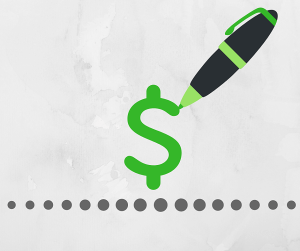 Most college students who take out private student loans will need a cosigner in order to be approved for the funds. So what exactly does a cosigner do when it comes time to repay the loan?
Most college students who take out private student loans will need a cosigner in order to be approved for the funds. So what exactly does a cosigner do when it comes time to repay the loan?
Myth: Student Loan Cosigners Help You Pay Off The Loan
If you’re hoping the cosigner is a buddy who will help pay off parts of your debt, I’m sorry to say that’s not the case. Your cosigner is not responsible for helping you pay off your student loan, they’re there to act as a sort of safety net. So why do most student loans involve a co-signer if they won’t help you pay off your loan? The truth is a co-signer is necessary to protect the interests of the loan lender.
Wondering Why Most Student Loans Involve A Cosigner?
You only need a cosigner when taking private student loans. Private lenders use your credit score as the primary criteria for lending your money. A good credit score means you are a responsible borrower, which makes it easier for your loan application to get accepted.
The problem is, as a student you are not likely to have had much opportunity to build a strong credit history yet, so the lender has no way of knowing whether you are a high or low risk borrower. This is why private lenders require student borrowers to have a cosigner with a good credit history.
By agreeing to co-sign your loan, cosigners are in effect taking responsibility for it and can be held accountable for repaying the amount only if you—the borrower—default on the loan.





